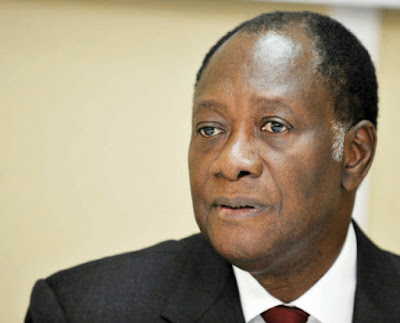Fears about a war notwithstanding, I feel it is important people understand that without a qualification of what "military intervention" would mean for Cot d'Ivoire, we are all making assumptions about a "hot war", which might not be the case at all. In March 2008, the AU, deploying a surgical objective of removing a dictator in the island of Comoros, went in (without South African or Nigerian troops) with some AU troops in what has been termed a "successful operation." While that island is small--and cannot be compared to Ivory Coast--it reflects the fact that the AU has a precedent in "military intervention". Research from Swedish Foreign Ministry about the Comoros intervention maintains there were no deaths, but some 11 civilians wounded.
Point is: there has been much talk about ECOWAS intervention, through ECOMOG, in Liberia in 1989. The arguments are sound about the need to avoid a direct comparison of the situations. What we must be asking though is why ECOWAS and the AU have not come out to clarify what military intervention would mean, given that ECOWAS has a Standby Force of roughly 6,500 troops which could be deployed--at least in theory. That Ghana has stated publicly about being unable to deploy troops does not foreclose the use of intervention by other ECOWAS member states.
The rhetoric of force in Cote d'ivoire has ironically come a couple of months after the AU declared 2010 to be the Year of Peace and Security. But what the AU failed to also do is provide sufficient information to the wider public about what this means about Africa having a "Peace and Security Architecture", under which regional standby forces, including the ECOWAS Standby Force, can be deployed.
I find it curious that neither the AU or ECOWAS has not sought to correct perceptions that there might be the prospect of an ECOMOG force--as in Liberia. ECOMOG no longer exists. I would have hoped the two leading African protagonists be more vocal about these misperceptions. That is not happening begs more debate that can probably be discussed when tensions around Cote d'Ivoire simmer down.
In the meantime, both ECOWAS and AU must come clean about a "hot war", which many West African citizens fear is likely to happen!
*picture from news24.com
RegionsWatch was set up in February 2004 to "monitor work of regional organisations; raise awareness of other regionalisms; provide constructive & progressive critiques of global regional integration initiatives". This blog will seek to continue the work that was being done in RegionsWatch's Observatory **Access this page by typing *http://critiquing-regionalism.org* **
Monday, January 10, 2011
Thursday, January 06, 2011
On Why Military Intervention in Ivory Coast by Ecowas Standby Force is Feasible et al...
Am heartened by the fact that there's a lot of interesting discussion around Ivory Coast, but I want to make a few points:
1. Nigeria -- those associating military intervention with a whim of Nigeria are woefully wrong. Goodluck is only toeing the ECOWAS line. The ECOWAS Framework for Conflict Prevention (available from ECOWAS, 2008) states that military intervention is the last resort "in the broader framework of peace and security architecture: )--p.15. Jonathan just happens to be chairing ECOWAS at the time of the crisis. It could have been any of the other 14 members proposing it as a last resort.
2. ECOWAS ability to intervene -- ECOWAS set a precedent of military intervention back in 1989 when it went into Liberia. The force was called ECOMOG, and 70% of it was indeed Nigerian. They went in with the mandate of peace enforcement. There were problems, but it was not an illegal intervention. Chapter VII of the Security Council enjoins regional organisations to utilise regional organisations "in the maintenance of international peace and security for which the Security Council is primarily responsible" (http://www.un.org/en/sc/repertoire/regional_arrangements.shtml)
3. ECOMOG vs Ecowas Standby Force -- ECOWAS has had missions in Liberia (ECOMOG); Cote d'Ivoire(2002); Sierra Leone; Guinea-Bissau. These had different monikers and were not all known as ECOMOG. In 2010, the African Standby Force (ASF) was born, under which the ECOWAS Standby Force(ESF) is a regional node, a kind of rapid reaction force. Each African region has one (there are five in total). This is what would likely intervene to depose Gbagbo. They trained in October 2010, and have the experience to avoid maximum bloodshed.
4. Human rights abuses -- there are many being perpetrated by pro-Gbagbo supporters, including attacks of UN forces whose sole mandate is to protect Golf Hotel and Outtara. What's the justification in attacking UN forces? ECOWAS has a Community Court, which will have full competence to accept cases of abuses of human rights when all this is over.
This is far from an exhaustive list of points, but for observers of international relations, this escalating crisis is one to keep one's eye on for the actors (a more activist UN; a secondary regional economic community in UEMOA setting a precedent by freezing funds of a member state; the lackadaisical performance of the AU--as exemplified by the choice of Raila Odinga as an AU Envoy, etc)
A more detailed analysis will be delivered in due course!
Subscribe to:
Comments (Atom)


